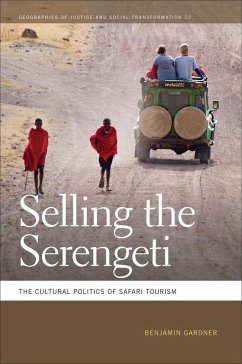Situating safari tourism within the discourses and practices of development, Selling the Serengeti examines the relationship between the Maasai people of northern Tanzania and the extraordinary influence of foreign-owned ecotourism and big-game hunting companies. It contrasts two major approaches to community conservation-international NGO and state-sponsored conservation efforts on the one hand and the neoliberal private investment in tourism on the other-and investigates their profound effect on the Maasai's culture and livelihood. It further explores how these changing social and economic forces remake the terms through which state institutions and local people engage with foreign investors, communities, and their own territories. And finally it highlights how the new tourism arrangements change the shape and meaning of the nation-state and the village and in the process remake cultural belonging and citizenship.
Benjamin Gardner's experiences in Tanzania began during a study-abroad trip in 1991. His stay led to a relationship with the nation and the Maasai people in Loliondo lasting almost twenty years; it also marked the beginning of his analysis of and ethnographic research into social movements, market-led conservation, and neoliberal development around the Serengeti.
Benjamin Gardner's experiences in Tanzania began during a study-abroad trip in 1991. His stay led to a relationship with the nation and the Maasai people in Loliondo lasting almost twenty years; it also marked the beginning of his analysis of and ethnographic research into social movements, market-led conservation, and neoliberal development around the Serengeti.
Dieser Download kann aus rechtlichen Gründen nur mit Rechnungsadresse in A, D ausgeliefert werden.









